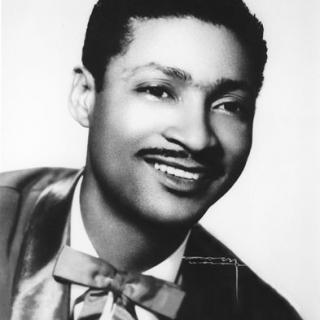
Benny Moré
4 Follower(s)
Bartolomé Maximiliano Moré Gutiérrez, better known as Benny Moré (Santa Isabel de las Lajas, August 24, 1919 - Havana, February 19, 1963) was a prominent Cuban singer and composer. His extensive range for interpretation, and his innate ability for musical composition have placed him at the zenith of Cuban culture.
His recordings have continued to be heard over time and his life has already become a legend. He was born in the Pueblo Nuevo neighborhood of Santa Isabel de las Lajas, in what was then the province of Las Villas, today the Province of Cienfuegos, in central Cuba. He recorded his first albums in 1944 in which he did the lead vocals, among them: Buenos hermanitos, La cazuelita, La queen of my bohío, I took her away, Will I be happy? What will that be? With the Phantom Duet Benny Moré made some recordings for RCA Victor records accompanied by orchestra and ensemble under the direction and arrangements of Lalo Montané, among them those entitled Mucho corazón (bolero), by Enma Elena Valdelamar; Enchanted with life (mambo), by Justi Barreto; Mambo salad, created by Benny Moré himself, and At midnight (bolero), by Pablo Cairo. Also for the RCA Victor label he recorded, with the accompaniment of the well-known Cuban orchestra Mariano Mercerón, Me voy pa'l pueblo (guaracha), by Mercedes Valdés, and “Desdichado”, of his own inspiration, among other works.
From the first moments, these record versions had enormous sales success, as well as exceptional acceptance in nightclubs, radio programs and Victrola slot machines. This success covered all of Mexico and different countries of Spanish-speaking America, and had as a consequence that, immediately, Mariano Rivera Conde, artistic director of the aforementioned record company, made Benny sign an exclusive contract, with the obligation to record a number of works, in any country where the artist was and with various groups under the aegis of RCA Victor, such as the orchestras of Mariano Mercerón, Rafael de Paz, Lalo Montané, Arturo Núñez, Chucho Rodríguez and Dámaso Pérez Meadow. With Miguel Matamoros' ensemble he made his first recordings on 78-rpm discs, including those entitled Penicillin, by Alberto Valdés; Bad neighbors and Creole Offering, by Miguel Matamoros, and Mexicanita, by Nené Enrizo.
As RCA Victor kept Benny subject to a contract, very quickly his 78 records and the first 45 revolutions per minute began to come out, accompanied by the orchestra of maestro Duarte, recordings that were sold like hot cakes in stores and nightclubs. of the Island. Already in those years Benny had the ability to simultaneously convert several of his recordings into hit parades on the radio, and his numbers could be heard on every corner where there was a bar with a Victrola. The Cuban bolero was acquiring with it a new connotation and style, unrepeatable for other interpreters. What Benny sang, practically no one else could sing.
The popular preference in the first years of the 1950s was the boleros Don't go cheating on me, by Osvaldo Farrés; For Being As You Are, by José Badán Slater, and How It Was, by Ernesto Duarte; and likewise the sones montunos Adiós, Palma Soriano, by Ramón Cabrera, and Bombón de pollo, by his compadre Enrique Benítez. Over the years, the artistic direction of RCA Víctor made him record several albums of boleros and guarachas as a duo with some famous figures hired by the same label. With that magnificent Mexican tenor Pedro Vargas, Benny sang the boleros Perdón and Obsesión, by Puerto Rican Pedro Flores, Only once (bolero), by Mexican Agustín Lara, and Life is a dream (bolero), by Cuban Arsenio Rodríguez; in Alma libre (bolero), by Juan Bruno Tarraza, he joined his voice to that of the charismatic Venezuelan tenor Alfredo Sadel. With the songbook Tony Camargo he sang the boleros Tonight, heart and Without reason or justice, by Chucho Rodríguez, and the guaracha Let the tide rise, by Otilio Portal. The accompaniments were provided by the orchestras led by Pérez Prado, Chucho Rodríguez, Benny Moré and the remarkable group of the Venezuelan Aldemaro Romero.
In 1952 he recorded with the Orquesta Aragón de Cienfuegos, which he helped introduce into the Havana musical world. Benny Moré's discography has around 250 recordings, a record for a Cuban artist of his time. A Barbarian who not only sought the rhythm, but also the people in his texts and his notes. A distinguished musician who, according to scholars, left a record of his voice when recording his records from 1940 to 1963, the year in which he died.